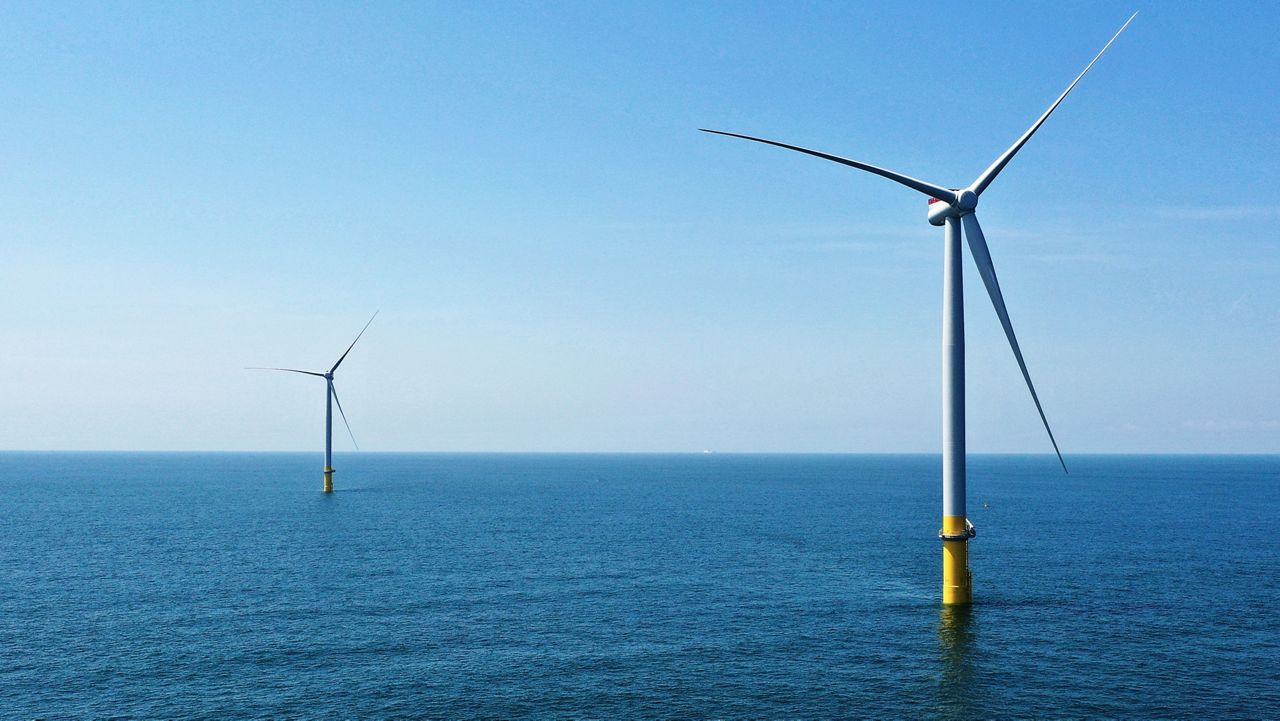In a few years, wind turbines off the coast of New York state could be generating clean electric power for millions of homes. But first, those turbines have to be built.
State and federal officials on Friday touted a massive investment in upstate New York they say will help curtail climate change and create jobs.
"We will be the future of clean energy," Gov. Kathy Hochul said at the Port of Albany. "Well ladies and gentlemen, welcome to the future."
That's where facilities in upstate New York like the Port of Albany will be playing a key role to help build and ship parts for those turbines down the Hudson River. Hochul, along with U.S. Energy Secretary Jennifer Granholm and Rep. Paul Tonko, praised the plan to have the rapidly growing port be a key piece of infrastructure for the influx of offshore wind projects in the coming years.
The announcement also comes after federal officials announced a half million acres of the coast of New Jersey and New York would be auctioned for offshore wind projects.
"That's how we keep investing not just in our economy, but in people. People will do those jobs," Hochul said. "We also need people to give people the skills they need to manufacture. You don't wake up one day and know to build one of these things. You need training."
More broadly, the effort is meant to curtail the effects of climate change as New York shifts to renewable and cleaner forms of energy in the coming decades and phases out carbon-based fuel.
"The long-term strategy is to get to energy that is free, which is what we're talking about here," Granholm told reporters after the event. "Energy that is clean — you don't have to pay for wind, just the mechanism to make sure the wind power gets to your home."
But there are questions over whether the federal government will provide enough incentives for clean energies like wind and solar. Rep. Tonko acknowledged the fate of a major social spending bill known as Build Back Better remains unclear.
"History will dictate here," Tonko said. "If we get the Build Back Better, that's a home run. Otherwise if there are essential needs, incentives, that are required, they can be taken up at the appropriations table."
